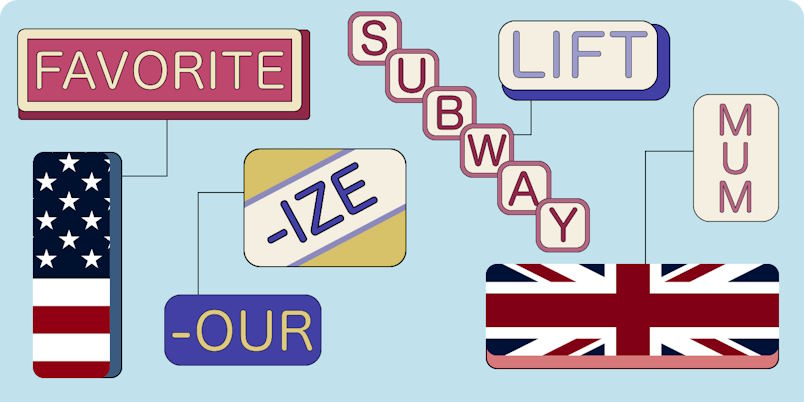
Language is an ever-evolving entity, constantly influenced by cultural nuances, historical events, and regional differences. One fascinating aspect of English is how idioms and expressions can differ between American and British English. These unique phrases not only provide a glimpse into the intricacies of each language variant but also reflect the diverse cultures they belong to. Here you will be Exploring the contrasting linguistic quirks of American and British idiomatic expressions.
About American English
Starting with American English, one popular idiom that comes to mind is “raining cats and dogs,” which depicts a heavy rainstorm. The origins of this phrase are uncertain, but it paints a vivid mental image of animals descending from the sky. In contrast, a similar expression in British English would be “raining stair-rods,” giving the impression of long and thin metal pegs falling from above.

Another American English idiom that might leave non-native English speakers puzzled is “couch potato.” This phrase refers to a person who spends an excessive amount of time lazily sitting on the couch, often watching television.
It reflects the couch’s association with laziness and the potato’s connotation of someone stationary, engrossed in their sedentary lifestyle. On the British English side, a comparable expression might be “couch slouch.” Though both idioms convey the same idea, the choice of words showcases the regional variation. Thus, Bridging the cultural divide through American and British idioms.
About British English
When it comes to idioms involving time, Americans might say “the ball is in your court” to mean that it is someone else’s turn to take action or make a decision. This expression likely grew from the world of sports, specifically tennis. In British English, a similar phrase would be “the ball’s in your court,” with only a small variation in wording but the same overall meaning.

Idioms and expressions related to weather often have fascinating differences between American and British English. For instance, Americans might say “under the weather” when feeling ill or unwell. This idiom illustrates how being physically affected by the weather can dampen one’s spirits. Contrarily, a British English counterpart for the same situation could be “full of cold,” focusing on the bodily symptoms rather than the meteorological impact.
Idioms and expressions are an integral part of language, allowing us to express ourselves creatively and contextually. American and British English exhibit countless distinctive idioms and expressions, showcasing the cultural diversity and historical influences in each region. So, look at the colourful phrases that differentiate American and British English.


